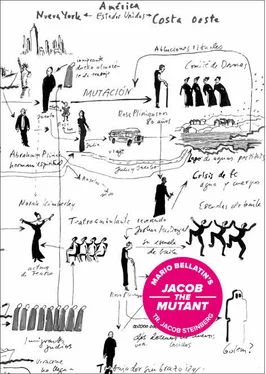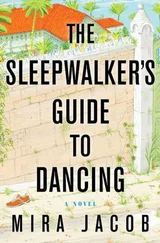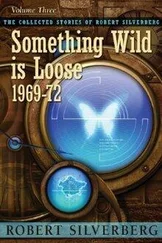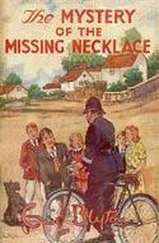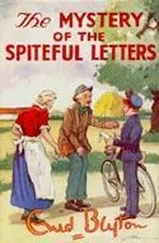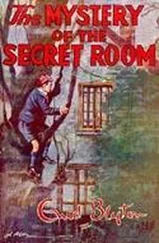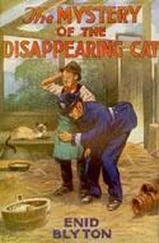Mario Bellatin - Jacob the Mutant
Здесь есть возможность читать онлайн «Mario Bellatin - Jacob the Mutant» весь текст электронной книги совершенно бесплатно (целиком полную версию без сокращений). В некоторых случаях можно слушать аудио, скачать через торрент в формате fb2 и присутствует краткое содержание. Год выпуска: 2015, Издательство: Phoneme Media, Жанр: Современная проза, на английском языке. Описание произведения, (предисловие) а так же отзывы посетителей доступны на портале библиотеки ЛибКат.
- Название:Jacob the Mutant
- Автор:
- Издательство:Phoneme Media
- Жанр:
- Год:2015
- ISBN:нет данных
- Рейтинг книги:3 / 5. Голосов: 1
-
Избранное:Добавить в избранное
- Отзывы:
-
Ваша оценка:
- 60
- 1
- 2
- 3
- 4
- 5
Jacob the Mutant: краткое содержание, описание и аннотация
Предлагаем к чтению аннотацию, описание, краткое содержание или предисловие (зависит от того, что написал сам автор книги «Jacob the Mutant»). Если вы не нашли необходимую информацию о книге — напишите в комментариях, мы постараемся отыскать её.
is a novella in a perpetual state of transformation — a story about a man named Jacob, an ersatz rabbi and owner of a roadside tavern. But when reality shifts, so does Jacob, mutating into another person entirely.
Jacob the Mutant — читать онлайн бесплатно полную книгу (весь текст) целиком
Ниже представлен текст книги, разбитый по страницам. Система сохранения места последней прочитанной страницы, позволяет с удобством читать онлайн бесплатно книгу «Jacob the Mutant», без необходимости каждый раз заново искать на чём Вы остановились. Поставьте закладку, и сможете в любой момент перейти на страницу, на которой закончили чтение.
Интервал:
Закладка:
I chose not to include that element — the Tiny Nocturnal Zoo — in the text known as Jacob the Mutant .
The fact that the animals were seen at night doesn’t imply that they were necessarily specimens of nocturnal habits, but they served as a pretext for the rabbi to continue operating the tavern.
I ought to clarify that my grandfather never mentioned Joseph Roth or a rabbi named Jacob whose wife worked by night.
Nevertheless, I find it curious that in Joseph Roth’s book (which in reality isn’t a complete book but rather diverse fragments found over the years in the archives of certain German publishing houses) a character named Macaque also appears, with characteristics similar to those that my grandfather used to mention during our walks near the camels.
Perhaps the coincidence — the name Macaque — was nothing but the manifestation of a collective imagination in the places that my grandfather certainly passed through in his childhood.
According to Joseph Roth, Macaque helped Jacob arrange the escape of groups of Jews fleeing the Russian pogroms that had been unexpectedly brought back in that era.
The tavern also then served as a meeting point, so that the survivors of those pogroms might flee to safer lands.
Macaque helped Jacob ensure that the fugitives continued their flight up until she herself ended up fleeing. Upon reaching New York, Macaque transformed into a famous actress that Joseph Roth named Norah Kimberley.
I am not certain, but I think my grandfather even used, in the same way that Joseph Roth had, both names to refer to that woman — Macaque and Norah Kimberley.
The Macaque that my grandfather always described while standing before those camels was also a woman of Slavic origins. But unlike the woman who helped those fleeing from the pogroms, this Macaque was herself fleeing a horrific marriage, and in a restaurant where she stopped to rest on her way she came across a martial arts expert.
According to my grandfather, this Macaque needed to do nothing more than exchange certain looks, just a few words, to continue the escape from her marital home along with the martial arts fighter.
My grandfather even went so far as to tell me, standing there before those camels, that the fighter ended up being murdered some years later by the police.
The incident with the police occurred after the fighter was accused of making rat-skin shoes.
These things my grandfather tells me can’t be true , I remember having thought to myself more than once as a child.
As an adult — in the midst of the mystical process I was going through at the time — I repeated that very phrase again.
But in that moment I also remembered that each time that my grandfather told his stories, I heard — as though they came from almost fathomless distances — something like a chorus of voices articulated in Yiddish.
Do you hear them? my grandfather would say to me, raising his index finger.
All this time I have chosen not to consider the reasons why I was always certain that the words were being said in that language.
Where could they have come from?
How could I have known that they belonged to a language that I didn’t even know existed?
After my grandfather would corroborate the existence of these voices (I don’t know how he gave such reassurance), he would then explain that Macaque was a woman who referred tirelessly to her lover who had been assassinated so many years prior.
As I already knew from my grandfather’s first strolls with me in tow, that man had been a martial arts fighter who, at a certain point in his life, had to flee an international vendetta.
He needed to escape from the Chinese mafia, which at that time had taken over the kung fu filmmaking industry, a genre that reached a certain level of success in the United States.
After the crime, Macaque became a single woman.
According to my grandfather, Macaque’s romance with the martial arts fighter lasted about three years.
They settled down in an old boarding house downtown, and the fighter was able to procure a small location nearby to make his shoes.
Perhaps driven by the memory of her marital relationship, Macaque asked the fighter for them not to live entirely together.
My grandfather never explained to me (or at least I don’t remember him having done so) why an expert in martial arts would devote himself to the shoe-making industry.
Although it is also true that my grandfather never mentioned who that man was before becoming a martial arts fighter and getting involved in the filmmaking industry.
In reality, I think my grandfather spoke little.
I now have the sensation that he barely murmured just a few scant words.
That’s why it seems curious to me that I could have thought that he had told me these stories that I’m now relating during our frequent visits to the zoo.
I am also overlooking the reasons why I thought my family didn’t address him as a dead man, but rather as someone who had transformed into someone else.
Getting back to my grandfather and his potential ability, or lack thereof, to express himself, it seems to me that there always remained within me a question as to whether or not he spoke to me. For I felt at every moment that he existed in a different state of reality.
Now that I am thinking about it, my grandfather gave the impression of having become trapped in a kind of eternal present.
In a time when, for example, a string of different languages — both living and dead — were able to converge on a single point: him.
I have always known that my grandfather became bilingual with time.
I was never sure what language my grandfather spoke before reaching our land.
That is to say, his second language — for we know that his first language, Yiddish, was prohibited.
I now feel the need to repeat — as a sort of homage to my grandfather — that Yiddish was strictly prohibited in his childhood environs.
Yiddish could only be used at home.
I am not certain that this scene actually occurred, but one time I saw him performing a kind of dance at that zoo we would visit.
I remember we had gone to take our usual walk on a day with low attendance.
At least I didn’t see any other person act as a witness to the dance that my grandfather carried out that day.
As he danced, he repeated, almost like a mantra, that Yiddish couldn’t leave their houses.
That it was a language confined to the wooden table where the community’s family members ate.
The spectacle of my grandfather leaping and doing something like somersaults on one of the zoo’s paths produced a sensation in me that I would describe if I had the talent necessary to do so.
I don’t think now is the opportune moment.
I ought to concentrate on the ninety-nine divine names of God.
Curiously, watching my grandfather repeat between jerks that Yiddish could not be shared, even with neighbor families, didn’t become an absurd or terrible scene for me.
My grandfather’s complaint — manifested in a dance that was at a certain point laughable, performed on one of the paths of that empty zoo — seemed like more of a joke than a protest.
He didn’t show the tragic nature he truly carried within him.
It seems to me that this is the purpose of dance in general.
To conceal a series of unresolved ancestral questions that appear from generation to generation in situations that seem banal.
The prohibition against making his mother tongue public seemed to be the fundamental issue at the heart of the pantomime that my grandfather would always perform.
In that moment of apparent ecstasy, my grandfather even began to mispronounce his Spanish, which he usually could express himself with in a natural — what we would even call perfect — way.
Читать дальшеИнтервал:
Закладка:
Похожие книги на «Jacob the Mutant»
Представляем Вашему вниманию похожие книги на «Jacob the Mutant» списком для выбора. Мы отобрали схожую по названию и смыслу литературу в надежде предоставить читателям больше вариантов отыскать новые, интересные, ещё непрочитанные произведения.
Обсуждение, отзывы о книге «Jacob the Mutant» и просто собственные мнения читателей. Оставьте ваши комментарии, напишите, что Вы думаете о произведении, его смысле или главных героях. Укажите что конкретно понравилось, а что нет, и почему Вы так считаете.
